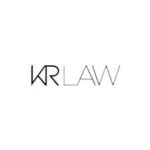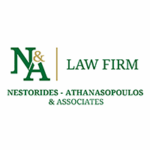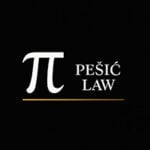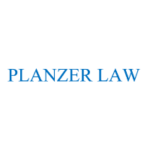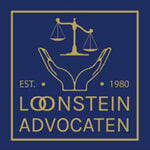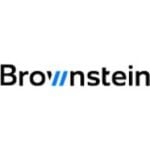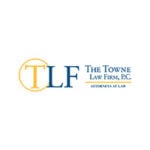-
What is the legal definition of gambling?
In Australia, an activity will be regarded as gambling if the activity generally involves all the following elements:
- The consideration element – the staking of money or any other provision of consideration of real-world value;
- The chance element – the outcome of an event determined by an element of chance or mixed chance and skill; and
- The prize element – the prospect of winning a prize.
If an activity does not involve one or more of the above elements, it is unlikely to be considered gambling under Australian law. However, gambling activities are regulated at both the Federal and State and Territory levels, and Federal legislation and State and Territory legislation each define gambling (with the definitions differing slightly between the Federal legislation and each State and Territory legislation).
This has the effect that:
- an activity may be considered gambling in some Australian States and Territories, but not in others – this issue often arises in relation to skill-based games.
- it may be unclear if a particular type of activity falls within the scope of the definition of gambling – this issue often arises in relation to social games, as it is unclear under Australian law if in-game purchases satisfy the consideration element or if additional play prizes (or other prizes that do not have real-world value) satisfy the prize element.
-
What legislation applies to gambling? Please provide a summary of the legal/regulatory framework.
Legislative power for online gambling in Australia is divided between the Federal government and the governments of Australia’s eight constituent States and Territories.
Interactive (online) gambling services
Very generally, Federal gambling legislation regulates interactive (online) gambling services, whilst State and Territory gambling legislation sets out the framework within which interactive gambling services permitted under Federal gambling legislation can be licensed, conducted and promoted.
The principal piece of Federal legislation which applies to interactive gambling services is the Interactive Gambling Act 2001 (IGA). The general principle under the IGA is that the provision (and advertisement) of interactive gambling services is prohibited unless that service is provided under a licence issued by an Australian gambling regulator. Only certain types of online gambling activities can be licensed in Australia – for example, online casinos cannot be licensed in Australia, and it is prohibited to provide those services in Australia under the IGA.
In order for an interactive gambling service to be provided lawfully in Australia, the service must comply with both the IGA and the law of any State or Territory in which that service is provided to customers. This means that services which are provided Australia-wide must comply with the IGA as well as the laws of all of Australia’s eight constituent States and Territories.
Land-based gambling services
Very generally, all types of land-based gambling services are regulated under State and Territory gambling legislation. Separate legislation exists for each type of gambling service.
An example of the myriad of legislation that applies to gambling activities in Australia under Federal legislation and New South Wales (State) legislation is set out below – note that the list of Federal gambling legislation and New South Wales legislation is not exhaustive. Various rules, guidelines, directions, orders and standards that are issued by the Federal or New South Wales regulator and/or the responsible Minister also apply to the gambling sector and must be complied with. There are also other State and Territory legislation that will apply.
Federal
The following laws apply at the Federal level:
- Interactive Gambling Act 2001
- Interactive Gambling Regulations 2019
- Interactive Gambling (National Self-exclusion Register) Register Rules 2022
- Anti-Money Laundering and Counter-Terrorism Financing Act 2006
- Anti-Money Laundering and Counter-Terrorism Financing Rules Instrument 2007 (No 1)
New South Wales
The following laws apply in New South Wales:
- Betting and Racing Act 1998
- Betting and Racing Regulation 2022
- Betting Tax Act 2001
- Casino Control Act 1992
- Casino Control Regulation 2019
- Community Gaming Act 2018
- Community Gaming Regulation 2020;
- Gambling (Two-Up) Act 1998
- Gaming and Liquor Administration Act 2007
- Gaming and Liquor Administration Regulation 2024
- Gaming Machine Act 2001
- Gaming Machine Regulation 2019
- Gaming Machine Tax Act 2001
- Public Lotteries Act 1996
- Public Lotteries Regulation 2016
- Totalizator Act 1997
- Totalizator Regulation 2022
- Totalizator Agency Board Privatisation Act 1997
- Unlawful Gambling Act 1998
- Unlawful Gambling Regulation 2021
- Bookmaker Declared Betting Events Betting Rules
-
Which body/ies regulate gambling?
The key regulatory bodies responsible for supervising gambling in Australia are:
- Australia (Federal) – Australian Communications and Media Authority (ACMA) and Australian Transaction Reports and Analysis Centre (AUSTRAC);
- New South Wales – Liquor & Gaming NSW, the Independent Liquor & Gaming Authority, NSW Independent Casino Commission and the Department of Enterprise, Investment and Trade;
- Victoria – the Victorian Gambling and Casino Control Commission and the Department of Justice and Community Safety;
- Australian Capital Territory – the Australian Capital Territory Gambling and Racing Commission;
- Northern Territory – the Northern Territory Racing and Wagering Commission (NTRWC) and Licensing NT;
- Queensland – the Office of Liquor and Gaming Regulation;
- South Australia – Consumer and Business Services;
- Tasmania – the Liquor and Gaming Commission; and
- Western Australia – the Gaming and Wagering Commission and the Department of Local Government, Sport and Cultural Industries.
-
Are licences available? If so: a) What is the duration of a licence? b) What types of licences are available? c) Are there different types of licences for B2C and B2B operators? d) Do software suppliers need to be licensed?
The Australian legislative framework for the gambling sector distinguishes between interactive (online) and land-based gambling – both are regulated at the Federal and State and Territory levels.
As indicated above, interactive (or online) gambling services are regulated at the Federal and State and Territory levels, while land-based gambling is regulated mostly at the State and Territory level. At the State and Territory level, the distinction is due in part to the different regulatory frameworks that exist for the different types of gambling services, such as casinos and gaming machines.
Generally, there is a prohibition under all Australian gambling legislation on the conduct and promotion of gambling. However, legislative exemptions exist for gambling activities that are conducted under a licence. These activities include:
- lotteries (including instant or scratch lotteries (both in venues and online));
- wagering and sports betting (both in venues and online);
- slot machines, or ‘pokies’ (just in venues); and
- land-based casinos where casino games, including poker, baccarat and blackjack (among others) can be played.
In addition, certain activities, such as trade promotions, charitable lotteries, raffles, bingo and football tipping can be conducted under State and Territory legislation. These activities are considered to be soft forms of gambling and are subject to specific restrictions and, in certain jurisdictions, are only able to be conducted where a permit has been issued by the relevant regulator.
It is generally understood under principles of Australian constitutional law that online gambling services provided under a licence issued in any state or Territory of Australia are able to be provided to residents of other Australian States and territories. This principle was confirmed by the decision of the High Court of Australia in Betfair Pty Ltd and Another v. Western Australia (2008) 244 ALR 32.
Land based gambling licences
Land-based licences (including casinos, lotteries and retail betting) are generally difficult to obtain.
An exclusive licence has been granted in each State or Territory to:
- conduct off-course betting in retail venues; and
- provide lottery products in retail venues (principally, newsagents).
Further, licensed venue operators are permitted to conduct land-based machine gaming (such as poker machines). Licensed venue operators include casinos, pubs and clubs. The sole exception to this principle is in Western Australia, where gaming machines are only permitted in casinos. There are restrictions that are imposed on the operation of gaming machines by licensed venue operators, including a cap on the total number of gaming machines in a particular venue (or in the relevant State or Territory itself). The regulatory regime in respect of gaming machines differs from jurisdiction to jurisdiction.
Until recently, there was a limited number of casino licences granted in each State and Territory. However, in recent years, this exclusivity has been relaxed.
The licences for land-based gaming services are typically granted on a long-term basis (e.g. 20 years) and often involve the payment of substantial licence fees and taxes.
Interactive (online) gambling licences
The Northern Territory is the leading online gambling licensing authority in Australia, and there is no limit on the number of online licences that may be granted by the Northern Territory regulator.
Generally speaking, licensed operators may offer online gambling services in the form of sports betting and wagering, the sale of online lottery tickets and online keno games. There are no requirements specifying the online platforms or devices on which a gambling product may be offered to customers.
The duration of an online gambling licence varies; however, for operators licensed in the Northern Territory, it is generally a maximum term of 20 years.
Other licences
In addition to the principal licences granted to an online or land-based gambling operator, ancillary licences may be required to facilitate the conduct of the operator’s gambling business.
For example, in relation to land-based gambling, operators that conduct gambling activities in a casino, pub or club, separate licences are required to be held by manufacturers and suppliers of gaming machines, as well as testing agents.
These ancillary licences are more readily available. They are usually valid until the gaming machine licence is surrendered or cancelled rather than for a specific period. Where licenses are granted for a specific period, the licence holder must extend or renew their licence on a periodic basis, as appropriate.
Further, some service providers (including software suppliers) will generally not require a licence to offer their services to Australian operators. However, the service provider’s systems may be subject to review or approval processes as a condition of the licence granted to the operator that uses their system.
-
Are any types of gambling products prohibited?
As mentioned above, there is a general prohibition under Australian law on the conduct and promotion of online gambling – the IGA specifically prohibits the supply of online gambling services (such as online casino games and online poker) to Australian residents.
However, this prohibition does not apply to other types of online gambling services provided under a licence granted in an Australian State or Territory – including sports betting and wagering (with the exception of online in-play sports betting as this is is restricted to bets placed over the telephone or in venues), the sale of online lottery tickets and online keno games.
In any event, licences granted to online gambling operators often impose restrictions on the manner in which the licensed operator may conduct its gambling business. For example, gambling operators licensed by the NTRWC are required to locate various aspects of their gaming operations in the Northern Territory. In addition, various restrictions also exist at the State or Territory level and apply to licensed online wagering operators that provide services to residents in the relevant State or Territory. These restrictions apply irrespective of the State or Territory in which the operator is licensed and can include requirements for payment of taxes (such as a point of consumption tax in respect of bets made by residents in that State or Territory), advertising, and pre-commitment.
-
What is the headline application procedure? Please include any eligibility and other application requirements, including approximate application costs and any need to establish a local presence.
The process involved in applying for a licence to conduct a gambling business in Australia will depend on the type of licence and the jurisdiction in which it is sought. However, the documentation required for Australian land-based or online gambling licences are generally similar.
In order to be eligible to obtain a licence, applicants must be registered in Australia as a corporate entity under the Corporations Act 2001 (Cth). In addition to the eligibility requirement, an applicant must demonstrate the financial viability and suitability of the applicant company, its shareholders and directors, and that of the holding companies and ultimate beneficial owners. This will generally involve a due diligence process. The applicant (and its corporate group) is generally required to provide the following information:
a) the applicant’s certificate of registration and a copy of its constitution;
b) a business plan;
c) prescribed financial information (including assets, liabilities and financial forecasts);
d) legal and regulatory compliance information;
e) technical (systems) or venue documentation;
f) the current prescribed licence fee; and
g) a Deed of Release and Authorisation to enable the regulator to conduct all necessary inquiries.For land-based licences, this may also entail further examination of details of the premises to be used to offer the gambling services.
Generally, the regulatory and licensing authority in each jurisdiction will require any person or company associated or connected with a gambling operator to be the subject of a probity investigation to determine their suitability. Probity investigations can be onerous and will usually require the person or company being investigated to disclose sensitive information including educational history, employment history, financial records, tax returns and a statement of assets and liabilities.
Whether a person is sufficiently associated or connected with the gambling operator (to be the subject of a probity investigation is usually determined at the discretion of the regulatory authority. This may extend to directors, officers, employees and any person or company with a direct or indirect ownership interest in the applicant. In addition, employees or persons involved in the day-to-day operation of the company may also be required to undergo a separate licensing process (eg, as a key employee).
The timing of the licensing and probity process will vary depending (again) on the type of licence and the jurisdiction in which the licence is being sought. For example:
a) For an online gambling licence granted in the Northern Territory, the licensing and probity process will typically take a period of three to six months. The application fee is AUD$29,000; and
b) For a land-based casino licence in New South Wales, the probity process is likely to last at least a year (noting that these licences are typically granted on an exclusive or limited basis) and the applicable fees may be substantial.
-
Do individuals within the business need to be personally licensed or authorised? If so, please provide headline requirements.
As mentioned above, key employees or individuals sufficiently associated or connected with a gambling operator (known as a close associate), are required to either hold a separate key person licence or an approval from the regulator prior to commencing their role. This includes an individual that is:
- a shareholder, director or executive officer of the licensed operator; and
- involved in the management or operation of the business of the licensed operator and has a significant influence over the licensee’s business.
Separately, a personal licence may be required in respect of an individual that provides certain services to a land-based gambling operator or venue. For example, an individual that is involved in the installation and maintenance of gaming machines must hold a gaming machine technician licence.
The application process for a personal licence or approval requires the completion of an application form and a background and/or police checks. The details that are required for a personal licence (eg, a key person licence or gaming machine technician licence) are less onerous than the details required to be submitted for a probity review in connection with an operator’s gambling licence. -
Is advertising of gambling permitted and, if permitted, how is it regulated?
Generally, advertising of gambling services offered by operators licensed in Australia is permitted, subject to strict requirements. Pure branding (ie, the display of a logo) is not usually considered advertising (and is permitted), but this will depend on the context.
There is a complex arrangement of laws and regulations which set out the framework for gambling advertising. These apply at the State and Territory level and vary from jurisdiction to jurisdiction and gambling product to gambling product. In addition, there are relevant industry and media codes, as well as more broadly applicable laws, such as Federal consumer protection laws (which prohibit misleading and deceptive conduct), anti-spam laws and privacy laws.
For example, in respect of online wagering operators, there are overlapping requirements under State and Territory laws which make it an offence to publish or otherwise advertise online wagering services that, among other things:
- encourage a breach of the law;
- depict children under the age of 18, or target children under the age of 18;
- suggest that winning will be a definite outcome of participating in gambling activities, or exaggerate claims relating to winning;
- suggest that participation in gambling activities is likely to improve a person’s prospects;
- promote the consumption of alcohol while engaging in gambling activities;
- are offensive, or are not published in accordance with decency, dignity or good taste; or
- offer an inducement to participate, or participate frequently in a gambling activity, including an inducement to open a betting account.
Further, there are strict laws that apply specifically to advertising of online wagering operators, including:
- restrictions on advertising published in traditional media, such as on print, television and radio advertising. Restrictions are imposed on wagering operators in respect of the advertising of live odds during sporting events and the promotion of gambling services on television and radio during peak times.
- the National Self-Exclusion Register (BetStop) prohibits online wagering and telephone-based operators from sending electronic marketing material and making telemarketing calls to an individual who is registered with BetStop.
- requirements to include a prescribed responsible gambling tagline and call to action (responsible gambling helpline phone number and website information) in any advertising material. The tagline that must be included depends on several factors, including the format and duration of the advertisement and the platform to which the advertisement is published.
Land-based advertising in pubs, clubs and hotels where retail betting is offered is also subject to strict restrictions.
Advertising of prohibited gambling operators
The IGA prohibits the publication in Australia of any advertisement (writing, still or moving picture, sign, symbol or other visual image, or audible message (or any combination of two or more of these things)) that either gives publicity to or is intended to promote gambling services that are prohibited or unlicensed (including offshore gambling operators). The prohibition applies to the advertising of the service itself (including an associated trade mark, domain name, URL or any other word that is closely associated).
-
Are marketing affiliates permitted? If so, are they licensed or regulated?
Gambling marketing affiliates are generally permitted under Australian law, provided they comply with relevant Federal and State, and Territory laws and regulations.
At the Federal level, affiliates that promote illegal online casinos or offshore gambling services are in breach of the IGA. The Federal regulator, ACMA, actively investigates and enforces actions against such affiliates. In recent years, ACMA has:
- Issued formal warnings to affiliate operators.
- Requested ISPs to block access to non-compliant affiliate websites.
- Prioritised enforcement against affiliates posing as independent reviewers.
State and Territory regulators oversee gambling advertising and marketing of licensed gambling operators, including affiliate arrangements. For example, in the Northern Territory, a licensed sports betting or wagering operator must request the NTRWC’s prior approval for any partnerships entered into where the licensed operator provides compensation to the other party for the referral of customers to the licensed operator.
-
What are the penalties for offering, facilitating or marketing unlawful gambling, and can the gambler be penalised for participating in unlawful gambling?
The penalties that apply to the offer, provision or facilitation of the provision of, a prohibited or unlicensed gambling service varies between the Federal and State and Territory legislation and will depend on the type of gambling service being provided or advertised (and in turn, which law has been breached).
Generally, penalties are much lower for contravention of State and Territory laws than Federal laws (ie, the IGA). For example, the following penalties apply at the Federal level:
- a) The provision of (or the facilitation of the provision of) a prohibited or unlicensed online gambling service will attract the following penalties:
a. criminal offence – for an individual, up to AUD$1,650,000 per day, or up to five times that for a corporation (ie, AUD$8,250,000 per day); or
b. civil offence – for an individual, up to AUD$2,475,000 per day, or up to five times that for a corporation (ie, AUD$12,375,000 per day). - The publication (or the facilitation of the publication) of marketing or advertising materials relating to a prohibited or unlicensed online gambling service will attract a fine of up to AUD$59,400 for an individual and AUD$297,000 for a corporation.
Individuals
Generally, liability is placed on the operator of a prohibited or unlicensed gambling service rather than an individual that uses the operator’s services. However, liability may be placed on individual users of prohibited or unlicensed gambling services in limited circumstances. (although it is unlikely from a policy perspective that authorities will seek to prosecute individuals under these provisions).
- a) The provision of (or the facilitation of the provision of) a prohibited or unlicensed online gambling service will attract the following penalties:
-
Briefly detail key requirements for licensees.
A licensed gambling operator will be subject to various requirements to demonstrate ongoing suitability to hold a gambling licence (or be a close associate of a licensed gambling operator). The requirements are imposed by the relevant regulatory authority and vary between States and Territories, and between gambling activities. Generally, the requirements relate to ongoing reporting and disclosure obligations in respect of operational (and technical), financial, corporate and legal matters.
-
Briefly detail key anti-money laundering requirements.
The key anti-money laundering legislation is the Anti-Money Laundering and Counter-Terrorism Financing Act 2006 (AML/CTF Act). This is supplemented by the Anti-Money Laundering and Counter-Terrorism Financing Rules Instrument 2007 (No 1) and the Anti-Money Laundering and Counter-Terrorism Financing Rules 2025 (the AML/CTF Rules). The AML/CTF Act and AML/CTF Rules set out various requirements and prohibitions that are aimed at prohibiting and restricting money laundering and terrorism financing in Australia. The regulator, AUSTRAC, is established by the AML/CTF Act and monitors and enforces the controls set out in the AML/CTF Act and AML/CTF Rules. Gambling (excluding the provision of a lottery service) is included as a “designated service” under the AML/CTF Act and therefore, licensed gambling operators are therefore considered “reporting entities” which are subject to obligations under the AML/CTF laws. These obligations include:
- enrolling with AUSTRAC;
- preparing and implementing an AML/CTF program – the program must include:
a. a risk assessment;
b. senior management or board approval and adoption of the program;
c. appointment of an AML/CTF compliance officer;
d. an employee due diligence program;
e. a risk awareness training program for staff;
f. procedures for ongoing customer due diligence – including collecting and verifying “know your customer” information;
g. a process for independent reviews of the program; - adopting risk-based systems and controls for mitigating and managing money-laundering and terrorism-financing risks associated with the designated service, including adopting know-your-customer (KYC) requirements;
- reporting requirements, including suspicious transactions, certain business activities and transactions and annual reports;
- keeping records; and
- staff training.
More specifically, online wagering operators are also required to verify a new customer prior to providing a designated service. This means online wagering operators must conduct customer identity verification prior to a new customer opening an account with the operator.
AUSTRAC has been increasingly active in its review and enforcement of gambling operators. It has commenced various investigations, Federal Court of Australia proceedings and other enforcement action, in respect of land-based gambling operators and venues (including casinos) and online wagering operators.
Recently, amendments have been made to the AML/CTF Act. However, many of the changes will come into force on either 31 March 2026 or 1 July 2026.
-
Briefly detail key responsible gambling (or safer gambling) requirements.
Responsible gambling requirements are a key component of the Federal and State and Territory gambling regulation framework.
At the Federal level, the National Consumer Protection Framework (NCPF) for online wagering sets the national policy between the Federal and State and Territory governments for consumer protection. There are ten NCPF measures which include:
- a restriction on inducements;
- an obligation to verify customers;
- a requirement to provide responsible service of online gambling training to staff;
- a requirement to provide activity statements to customers;
- the implementation of consistent gambling messaging;
- voluntary opt-out and pre-commitment tools; and
- BetStop – the Self-Exclusion Register.
At the State and Territory level, requirements apply to both land-based gambling operators and online gambling operators. The requirements that apply vary depending on the type of licence held by the operator, and the State or Territory in which the operator is licensed. Several jurisdictions publish responsible gambling codes of practice or require relevant licensed operators to have a responsible gambling code.
Generally, a gambling operator or service provider is required to provide customers with:
- a) an option to self-exclude from the gambling services provided by the operator;
- options for imposing voluntary pre-commitment limits; and
- information about responsible gambling support services.
A gambling operator or service provider will be required to display responsible gambling messages (in accordance with specific requirements based on the type of service being provided).
In addition, land-based gambling service providers (such as pubs, clubs and hotels) are subject to additional responsible gambling measures. For example, this includes requirements to have a responsible gambling officer on duty in an area where gaming machines are available, a gambling incident register to keep a record of gambling-related incidents and the provision of training and management plans for staff.
-
Briefly detail shareholder reporting and approval threshold(s).
A licensed gambling operator will be subject to disclosure or approval requirements in relation to its shareholders by virtue of State and Territory legislation or the conditions of their licence. The requirements vary between each Australian State and Territory (and between each type of gambling operator). However, typically, the relevant legislation or licence conditions require a gambling operator to disclose or seek approval for any change to the ownership structure of the gambling operator (including changes relating to indirect shareholders).
Whilst disclosure requirements generally arise in circumstances where there is an acquisition of a direct or indirect shareholding interest in a gambling operator (in any amount), approval requirements arise in circumstances where there is an acquisition of a direct or indirect shareholding interest of more than 5 or 10 per cent in the operator. A full probity investigation is likely to be conducted by a regulatory authority in respect of the shareholder that is acquiring the relevant interest.
Importantly, a regulatory authority will maintain the discretion to conduct any investigation that it considers necessary (and at any time) to satisfy itself that any shareholder is suitable to be associated with the gambling operator. As a result, a shareholder of a licensed gambling operator that has been approved by a regulatory authority will itself be subject to ongoing disclosure obligations in respect of limited matters (such as financial, corporate and legal matters).
-
Briefly detail the regulator’s enforcement powers, including sanctions.
The Federal gambling regulator, ACMA, and the State and Territory gambling regulators, each have broad investigative and enforcement powers; however, the nature of the regulators’ power are different due to the separate regulatory frameworks that exist at the Federal and the State and Territory level.
For example, under the IGA, ACMA has the power to:
- issue formal warnings and infringement notices;
- notify the Department of Home Affairs (Australia’s immigration and border protection agency) of the names of directors to be included on the Movement Alert List;
- impose pecuniary penalties;
- notify foreign regulators of a gambling operator’s breaches of the IGA; and/or
- seek an order from the Federal Court of Australia to impose substantial civil penalties.
In contrast, State and Territory regulators have the power to:
- require the supply of documents and information;
- impose pecuniary penalties;
- commence civil and criminal proceedings; and/or
- conduct licence reviews, vary licence conditions, or suspend or cancel the licence.
-
What is the tax rate?
The taxes payable by a licensed gambling operator or service provider vary greatly, depending on the type of licence held by the operator or service provider, and the State or Territory in which the operator or service provider is licensed.
A specific gambling tax will be payable to the relevant regulatory authority of the State or Territory in which the gambling operator is licensed. This tax is generally payable as a percentage of net or gross revenue. In some circumstances, the tax payable may increase annually, be capped at a certain amount or be payable after a threshold is met. In addition, a gambling operator may be required to pay gambling taxes to other regulatory authorities (in States and territories outside the jurisdiction in which the operator is licensed).
For example, the gambling tax that is applicable to gambling operators licensed in the Northern Territory is as follows:
- For online gaming operators – the tax rate is 50% of net profits. There is no cap on the maximum tax payable per financial year.
- For online wagering operators ‒ the tax payable is:
a) 5% of net profits or commissions; and
b) is capped at AUD2.9 million per financial year.
An online wagering operator, irrespective of the jurisdiction in which it is licensed, will also be subject to a point-of-consumption tax. This is charged based on net wagering revenue in the following States and territories (subject to certain thresholds being achieved):
- South Australia – 15%;
- New South Wales – 15%;
- Victoria – 15%;
- Queensland – 20%;
- Australian Capital Territory – 25%;
- Western Australia – 15%; and
- Tasmania – 15%.
All the above taxes are calculated in a slightly different manner.
An online wagering operator will also be required to pay product fees to Australian sporting and racing bodies (for the rights to take wagers on sports matches and races).
In addition to specific gambling taxes, gambling operators will also be required to pay corporate taxes and goods and services tax (GST).
-
Are there any proposals for changing gambling laws and regulations in the next 12-24 months? If so, please provide an overview of the proposed changes and likely timing.
The Federal government is currently considering implementing further advertising restrictions in response to the 2023 ‘You Win Some, You Lose More’ report, which recommended a blanket ban on online gambling advertising in Australia.
Further details are expected in the next 6 to 12 months.
-
What key regulatory developments are proposed or on the horizon in the next 12-24 months?
There have been recent amendments to the AML/CTF Rules, and, following the consultation processes, the Anti-Money Laundering and Counter-Terrorism Financing Amendment Bill 2024 (the AML/CTF Amendment Bill) was introduced into Federal parliament and received royal assent on 10 December 2024. However, many of the changes will commence on either 31 March 2026 or 1 July 2026.
The three main objectives of the AML/CTF Amendment Bill are:
- to extend the AML/CTF regime to services provided by Tranche 2 entities (eg, lawyers, accountants, trust and company service providers, real estate professionals, and dealers in precious metals and stones);
- to modernise the regulation of virtual assets and payments technology; and
- to simplify and clarify the AML/CTF regime in order to increase flexibility, reduce regulatory impacts, and support businesses to prevent and detect financial crime.
The AML/CTF Amendment Bill also introduced material amendments relating to AML/CTF program requirements, risk assessment requirements, internal AML/CTF policies, initial/ongoing customer due diligence processes, and increases AUSTRAC’s investigative powers.
-
Do you foresee any imminent risks to the growth of the gambling market in your jurisdiction?
The general trend in Australia is towards a more regulated gambling market.
For example, the Report from the Federal government’s inquiry into whether the regulatory framework for online gambling and gambling advertising in Australia is fit for purpose and meeting community expectations (the 2023 ‘You Win Some, You Lose More’ Report) set out 31 Recommendations for changes to be made in the gambling industry to minimise gambling harm). The recommendations are being considered by the Federal government and there is a likelihood that many of the recommendations will be implemented – these include recommendations such as:
- the establishment of a Federal gambling regulator with a broad suite of powers to monitor online gambling and ensure compliance and take enforcement action;
- a total ban on gambling advertising of online gambling operators;
- the implementation of minimum bet limits for online wagering at a Federal level; and
- various obligations imposed on online gambling operators to monitor and reduce problem gambling.
However, Australia is a mature gambling market and, while there are restrictive measures in place for the operation of a gambling business, the gambling market remains strong. It is important for gambling businesses to respond to this regulatory and social risk by proactively demonstrating compliance and effective harm minimisation measures.
-
If a gambling start-up was looking for a jurisdiction in which to commence its activities, why would it choose yours?
Whilst Australia is a mature gambling market, and established gambling businesses perform well, it is difficult for a gambling start-up to commence business in Australia. There are multiple barriers to entry into the Australian market for traditional gambling operators, most notably the costs involved (with both setting up business and ongoing operational costs).
However, having said that, there are opportunities for start-up gambling businesses to establish a presence in Australia, particularly where those businesses are not traditional gambling operators. For new market entrants of innovative gaming products (including those that utilise new technologies in non-traditional applications), the Australian regulatory framework is less rigid than for traditional gambling businesses, and there is opportunity to engage with regulatory authorities to establish a business that remain within the parameters of the regulatory framework.
Australia: Gambling Law
This country-specific Q&A provides an overview of Gambling laws and regulations applicable in Australia.
-
What is the legal definition of gambling?
-
What legislation applies to gambling? Please provide a summary of the legal/regulatory framework.
-
Which body/ies regulate gambling?
-
Are licences available? If so: a) What is the duration of a licence? b) What types of licences are available? c) Are there different types of licences for B2C and B2B operators? d) Do software suppliers need to be licensed?
-
Are any types of gambling products prohibited?
-
What is the headline application procedure? Please include any eligibility and other application requirements, including approximate application costs and any need to establish a local presence.
-
Do individuals within the business need to be personally licensed or authorised? If so, please provide headline requirements.
-
Is advertising of gambling permitted and, if permitted, how is it regulated?
-
Are marketing affiliates permitted? If so, are they licensed or regulated?
-
What are the penalties for offering, facilitating or marketing unlawful gambling, and can the gambler be penalised for participating in unlawful gambling?
-
Briefly detail key requirements for licensees.
-
Briefly detail key anti-money laundering requirements.
-
Briefly detail key responsible gambling (or safer gambling) requirements.
-
Briefly detail shareholder reporting and approval threshold(s).
-
Briefly detail the regulator’s enforcement powers, including sanctions.
-
What is the tax rate?
-
Are there any proposals for changing gambling laws and regulations in the next 12-24 months? If so, please provide an overview of the proposed changes and likely timing.
-
What key regulatory developments are proposed or on the horizon in the next 12-24 months?
-
Do you foresee any imminent risks to the growth of the gambling market in your jurisdiction?
-
If a gambling start-up was looking for a jurisdiction in which to commence its activities, why would it choose yours?



